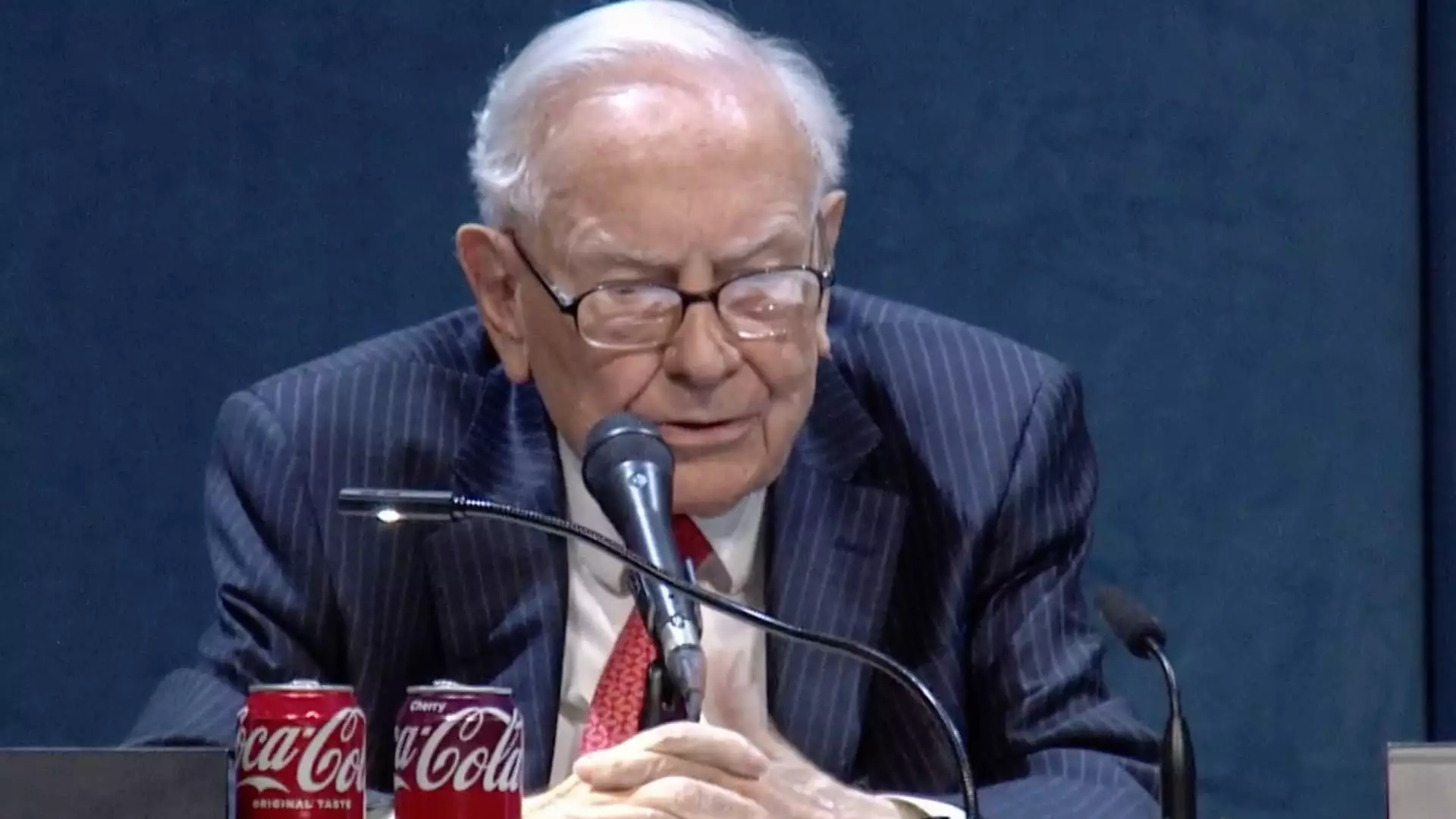In a twist that neither the market nor Warren Buffett himself anticipated, the stock of Berkshire Hathaway has plummeted by over 10% following his announcement to transition out of the CEO role. This stark reality serves as a testament to the significant influence one individual can have on the value of a conglomerate, and it starkly highlights the frailty of investor confidence when faced with the specter of change. Buffett, the “Oracle of Omaha,” has long been revered for his acumen in capital allocation and under his stewardship, Berkshire Hathaway flourished into a titan of industry. Yet, now, as the impending end of his tenure looms, many investors are questioning the stability of the very foundation he built.
Buffett’s Predictive Power Backfires
It’s almost paradoxical that Buffett once suggested Berkshire shares would thrive following his departure. Instead, since May 3, when he indicated plans to step aside, the stock’s performance has diverged sharply from the broader S&P 500, underperforming by a staggering 15 points. The so-called “Buffett premium,” which reflects the additional value investors place on a company due to the reputation and performance of its leader, now appears to be a double-edged sword. As analyst David Kass noted, the magnitude of this downturn is astonishing, particularly with Buffett remaining as chairman until year-end. It raises the uncomfortable thought that once he officially steps down, we could witness another slump—one that could be as deep as 20%.
The Uncertain Future with Abel at the Helm
Buffett’s successor, Greg Abel, is tasked with the monumental challenge of preserving the culture and identity that Buffett painstakingly cultivated over decades. While Buffett expresses confidence in Abel, the real question remains: can Abel match the unparalleled legacy that precedes him without losing the essence of Berkshire? It’s one thing for a visionary to express faith, but faith from investors largely hinges on results. Current indicators suggest that the markets may not be as forgiving, especially considering the recent downturn in Berkshire’s earnings—14% less than the previous year, to be precise. This decline in operating earnings, namely from its well-established insurance and railroad segments, only compounds the skepticism that shadows the company’s near future.
Algorithmic Trading and the Buffett Legacy’s Fragility
Interestingly, much of the stock’s initial sell-off seems to correlate with algorithmic trading practices—automatons reacting to perceived instability in investor sentiment. Analyst Kevin Heal noted that the immediate aftermath of Buffett’s announcement was indeed influenced by the ‘Buffett premium,’ followed by a digital-driven downward spiral. We are increasingly living in an age where market movements can pivot on the whims of algorithms, dismantling the very human element that Buffett championed throughout his career. The old adage “sell in May and go away” rings truer than ever, but added complications from technology are now interwoven into these traditional strategies.
In situations like this, it’s imperative to scrutinize how quickly sentiment can turn. Berkshire Hathaway might still boast a market capitalization exceeding $1 trillion, a staggering figure. Still, its trajectory, contingent upon Buffett’s imminent departure and the performance of Abel, seems precarious. The future of Berkshire may just hinge on the ability to restore investor confidence, a difficult task considering the looming absence of a storied sage like Buffett.

